Key takeaways:
- Grief in hospital settings affects not only patients and families but also caregivers, highlighting the need for compassion and community.
- Coping strategies such as journaling, art, and support groups help grieving patients process their emotions and feel less isolated.
- Emotional care through presence, non-verbal communication, and creating a welcoming environment can significantly alleviate patient anxiety and enhance their experience.
- Building community in hospital ministry fosters connection and support among patients and family members, reducing feelings of loneliness and promoting healing.
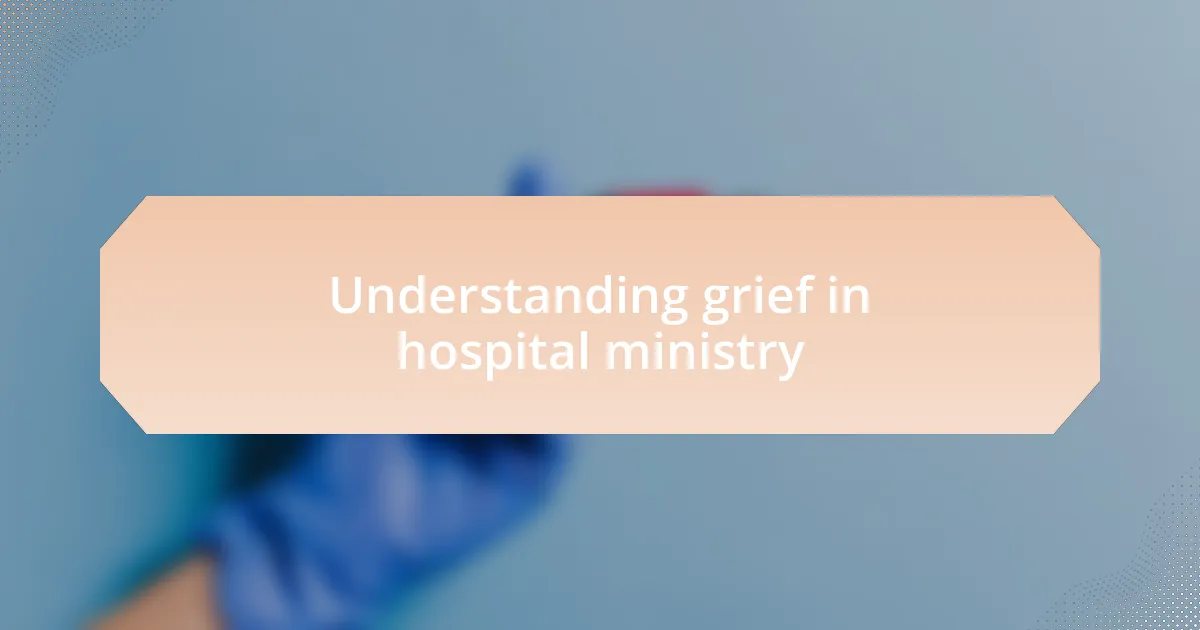
Understanding grief in hospital ministry
Grief is a complex emotion that often surfaces in hospital ministry settings, manifesting not just in those who lose a loved one, but also in the caregivers and patients themselves. I remember a moment when I sat with a family whose matriarch was in her final days. Seeing the sorrow in their eyes made me reflect on how interconnected our experiences of loss can be, often weaving a tapestry of shared anguish and understanding.
When I engage with patients facing terminal illnesses, I often wonder, what do they feel as they confront the fragility of life? I’ve seen how this question can open up deep conversations. One patient shared their fears about saying goodbye, expressing emotions that went beyond sadness—hitting on a core sense of loneliness, as if the walls of the room echoed their pain back at them.
Understanding grief in a hospital setting also involves recognizing how it can linger, even after a loved one’s passing. I once spoke with a nurse who described her daily struggle with the heavy silence left behind in the wake of loss. It made me consider how important it is for us to acknowledge that grief is not just a moment but a journey, one that needs compassion and community to help navigate through the darkness.
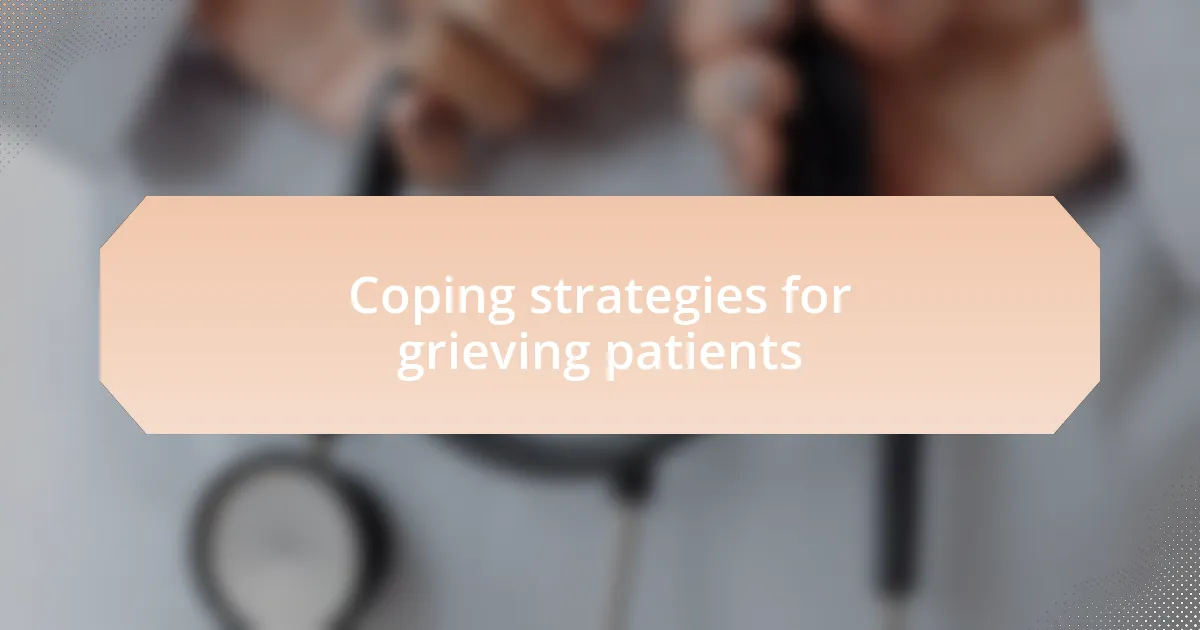
Coping strategies for grieving patients
Grieving patients often find solace in creating a routine that includes small, meaningful activities. I recall a patient who began journaling about her feelings each evening. This simple act not only provided her with a space to process her grief but also helped her articulate emotions that felt too heavy to speak aloud. Have you ever noticed how putting pen to paper can sometimes bring clarity in the midst of chaos?
Engaging with art or music can also serve as a powerful coping strategy. I once facilitated a creative workshop for patients, where one participant painted her sorrow on canvas. Watching her transform grief into something tangible was a profound reminder of how expression can be therapeutic. It made me wonder: how often do we underestimate the power of creativity in healing?
Support groups can be invaluable for those navigating grief. I remember sitting in on a session where patients shared their stories, often punctuated by tears and laughter. It was in those moments, surrounded by those who understood their pain, that many found a sense of belonging. How impactful it is to know we are not alone in our journeys, right?
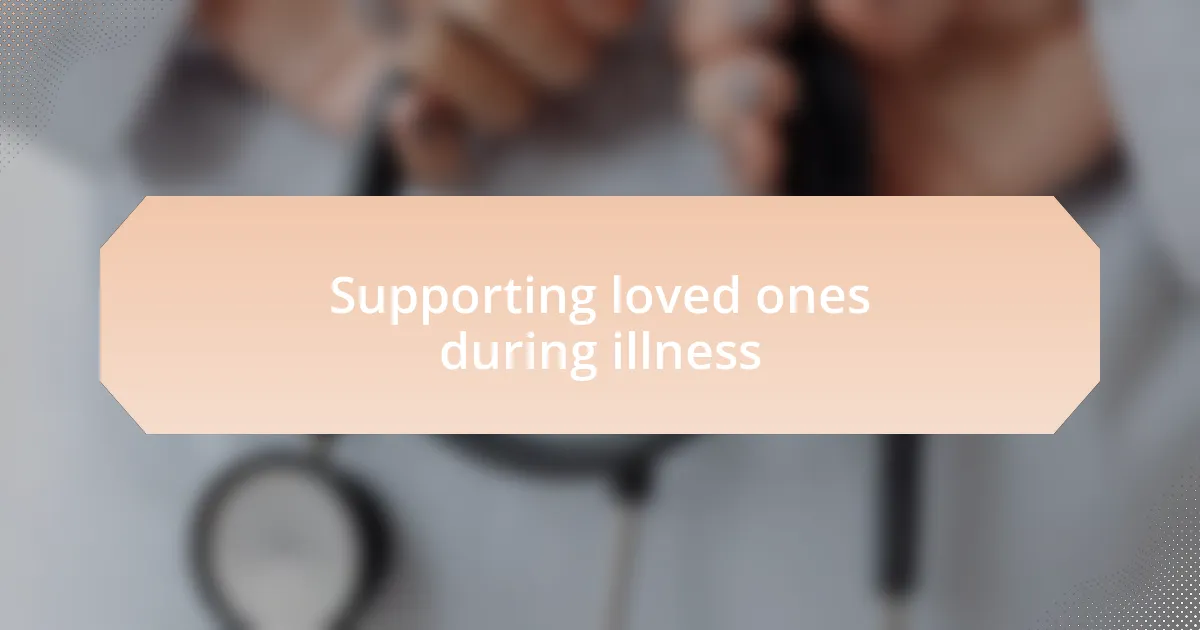
Supporting loved ones during illness
Supporting a loved one during illness can be challenging yet rewarding. I remember a close friend who faced a serious health crisis, and I made it a point to be present. Sometimes, just sitting quietly together, sharing a cup of tea, felt incredibly comforting. Have you experienced the weight of silent companionship? It can speak volumes when words fail.
I often find that small gestures can mean the world to someone who is unwell. One time, I brought my friend a collection of her favorite books, knowing that diving into stories would provide her an escape. The look of gratitude in her eyes reminded me that it’s not always the grand acts that matter; sometimes, it’s the thoughtful, simple things that ease the burden of illness. What little things have you done that brought a smile to someone’s face during tough times?
Communication is also key when supporting someone ill. I’ve learned that asking open-ended questions, like “How are you really feeling today?” invites deeper conversation and connection. In those moments, I felt like a true ally, navigating the uneasy territory of illness together. Isn’t it a gift to share those honest, often vulnerable, interactions?
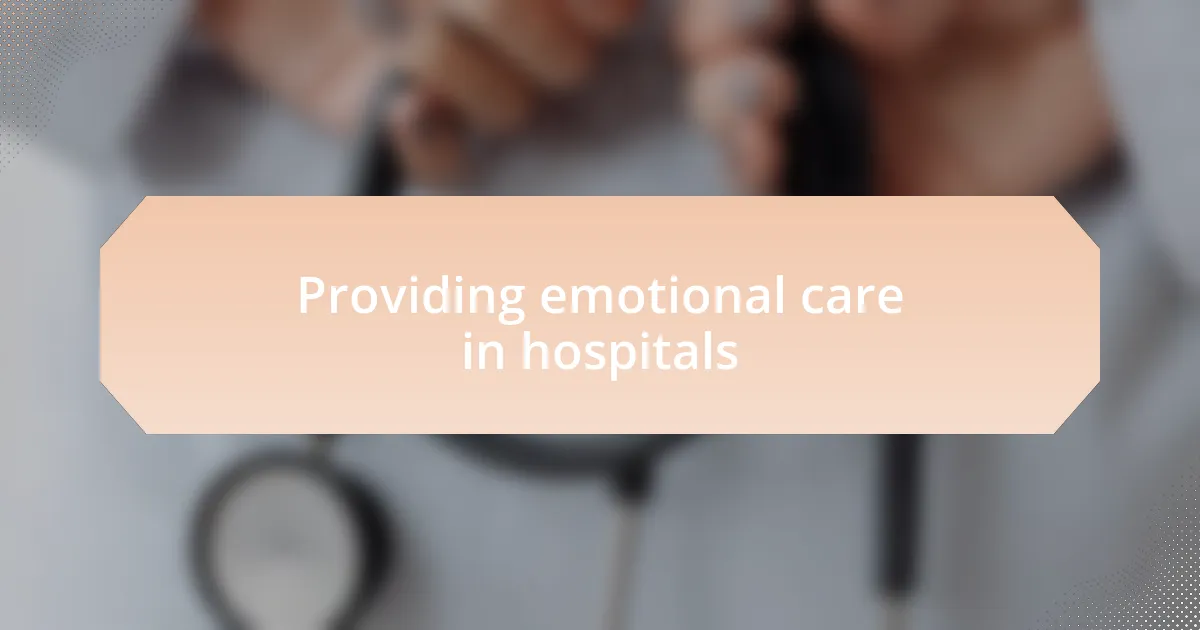
Providing emotional care in hospitals
When it comes to providing emotional care in hospitals, understanding the needs of patients is crucial. I recall visiting a dear family member in the hospital. He was overwhelmed by the sterile environment and the incessant beeping of machines. I learned that simply being there, offering a listening ear, can ease the anxiety and fear that often accompany a hospital stay. Have you ever noticed how just one familiar face can radically change the atmosphere in a room?
Another powerful way to deliver emotional support is through non-verbal communication. During one visit, I held my relative’s hand, and the comfort in that simple gesture was uplifting. It was as if words were unnecessary; my presence said everything. How often do we underestimate the impact of quiet support during difficult times?
Sometimes, creating a more welcoming environment can significantly alter a patient’s emotional landscape. I remember bringing a small photo album filled with joyful memories to my friend. Watching her face light up as she flipped through those pictures was a reminder of the strength found in shared history. What small tokens of love have you brought to someone facing illness that transformed their experience?
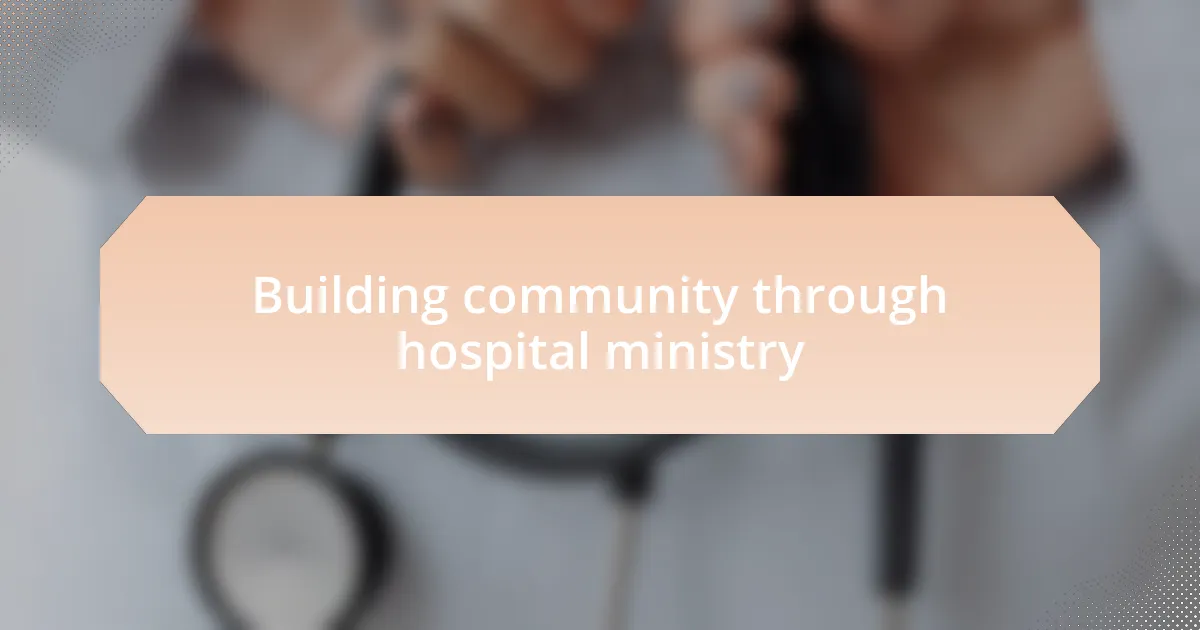
Building community through hospital ministry
Building community through hospital ministry centers on the idea that no one should experience illness alone. I remember a time when our ministry group organized a simple gathering in the hospital’s waiting area. We brought homemade snacks and encouraged visitors to share their experiences. There was a palpable shift in energy as laughter and stories began to flow—how often do we overlook the healing power of connection among strangers?
Engaging with patients in a meaningful way not only lifts their spirits but also fosters a sense of belonging. During a visit, I noticed a couple who sat nervously in a corner. I took the initiative to strike up a conversation, and they opened up about their fears. It reminded me how essential it is to reach out; sometimes, all it takes is one person to bridge the gap between isolation and community.
Moreover, I’ve found that encouraging patients to participate in group activities can significantly alleviate feelings of loneliness. One day, we arranged a light arts-and-crafts session for patients in recovery. The creative chaos that ensued broke down barriers, allowing everyone to share their stories. Have you ever seen how creativity can bring people together, even in the darkest moments? Through these communal experiences, we not only nurture individual healing but also build a network of support that extends well beyond hospital walls.